/crabapplemomshouse-84852026048648769439d22b0c5512a5.jpg)
How to Grow and Care for Flowering Crabapple Trees
Contents show Crabapple Tree Identification (With Photos) Crabapples are not from a single species. There are multiple species that they are derived from, including the large domestic apple, Malus domestica. Basically, a crab apple is simply an apple whose fruit rarely exceeds 2" in diameter. Some are very small, never exceeding ¼" in diameter.
/8168250728_7d75812682_k-2ac37e0c24234fbfad6a253e852186cc.jpg)
Weeping Crabapple Tree Care and Growing Guide
The crabapple tree is not fussy about the type of soil it's planted in—as long as it's well-draining. Otherwise, the roots of the tree can become soggy and subject to rot. Soil should be friable for the health and longevity of the tree. In addition, these trees do best in soil with a pH level of 5.0 to 6.5; slightly acidic is best.

Best Crabapples for Your Yard Better Homes & Gardens
last updated June 29, 2021 Growing crabapple trees in the landscape is commonplace for many homeowners, but if you haven't yet tried it, you may be asking, "How do you grow crabapple trees?" Continue reading to find out how to plant a crabapple tree as well as how to care for a crabapple tree in the landscape. Flowering Crabapple Trees
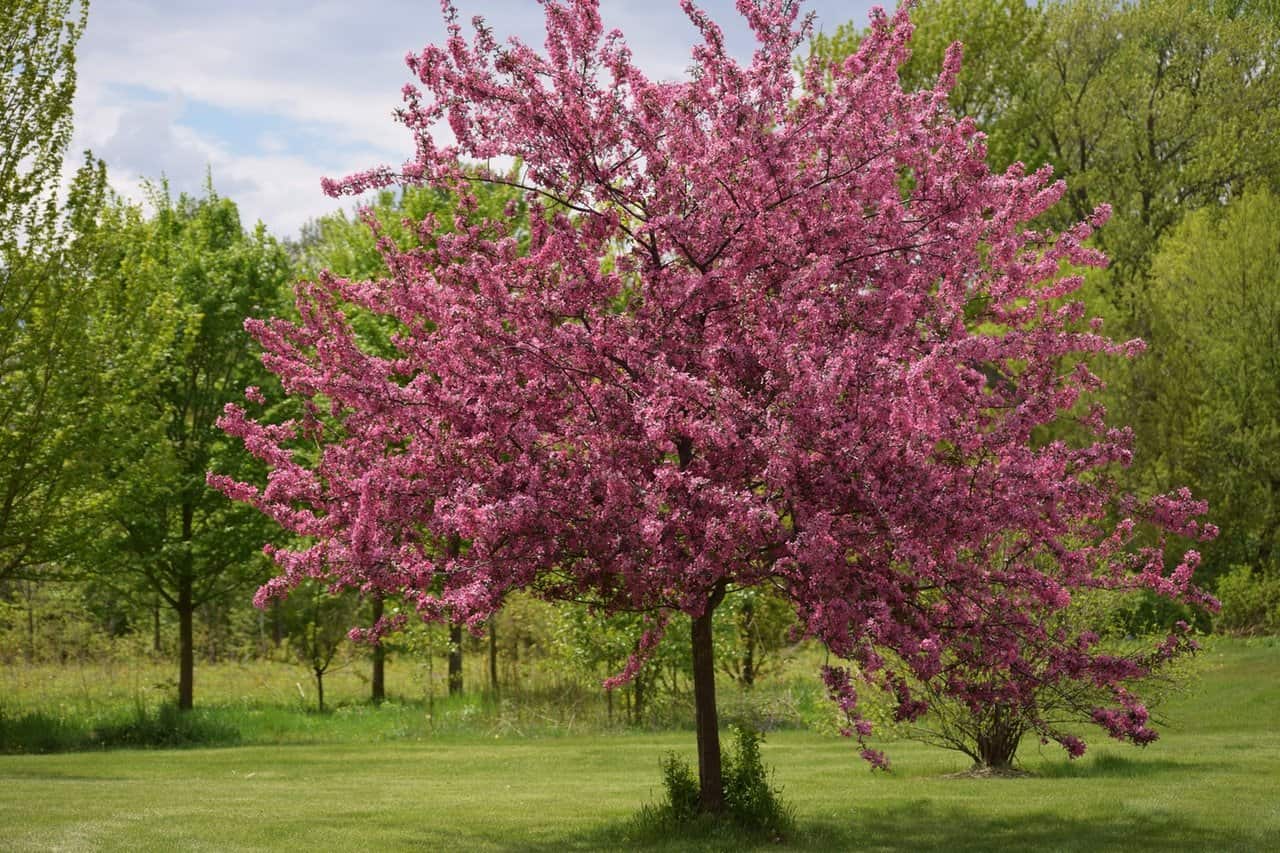
20 Types of Crabapple Trees ProGardenTips
What Does Crabapple Tree Look Like? How To Identify Crab Apple Trees? The crab apple trees grow near hedges, along the river banks, and the woodlands. They desire nutrient-rich soil with high levels of lime and alkalinity. Crabapples are prevalent in areas with high moisture and direct sunlight.

How to Grow and Care for Flowering CrabappleGarden Chronicle
Key Takeaways Crabapple trees can be identified by their size, shape, growth habit, leaf characteristics, bark texture, and the features of their flowers, fruits, and twigs. Crabapple flowers are typically arranged in clusters and can range in color from white to varying shades of pink and red.

The best crab apple trees for colour and form Crab apple, Crabapple
Identification. Crab apple trees grow wild along river banks, near hedges and woodlands. They need nutrient-rich soil with high levels of alkaline or lime and are found in areas providing direct sunlight and lots of moisture. Crab apple trees resemble other apple trees but are small, from 6 to 50 feet tall, reaching an average height of 25 feet.

All You've Ever Wanted to Know About Growing Beautiful Crab Apples
Flowering crabapples ( Malus spp.) are ornamental trees that produce showy blossoms and brightly colored fruits. Their fruits usually aren't sold by grocery stores, but you can grow and harvest crabapples from your tree to eat or add to recipes.
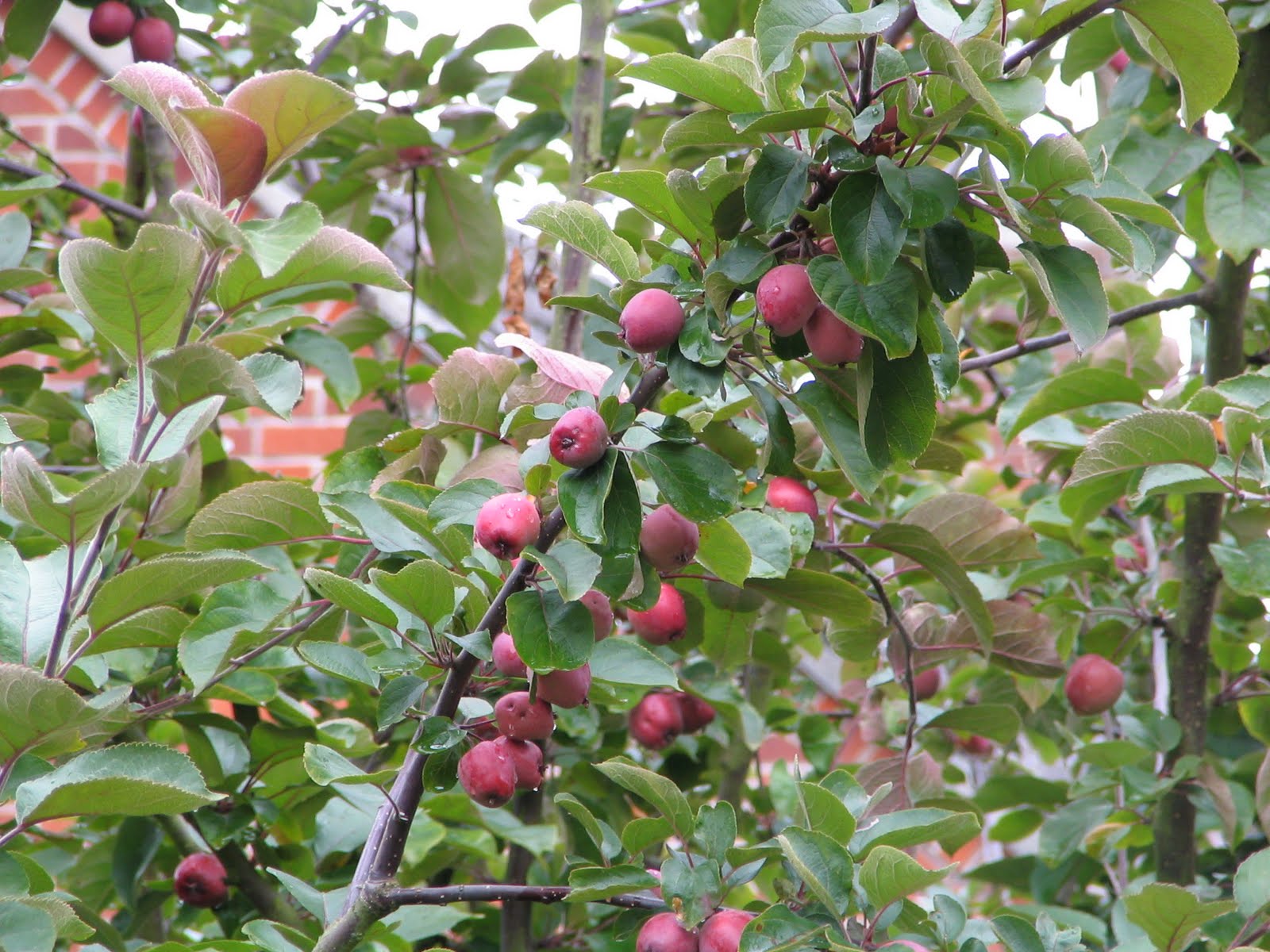
Mark's Veg Plot Crab Apples
Water well, and mulch. Be prepared to irrigate if necessary in the first year. Support is important when it comes to crabapple tree care. A 4ft (1.2m) tree stake knocked in at an angle, with the tree tied to its stake about 2ft (60cm) above the ground is ideal. Check tree ties regularly and tighten if necessary.

Weeping Crabapple in full bloom!! Highly specimen tree
Avoid over-pruning. Trees need time to form callus over a wound, so it's best to remove only the branches that need it. Get more pruning advice: Pruning a Crabapple Tree. Diseases: Apple scab, cedar apple rust, fire blight, and powdery mildew are the most common diseases to afflict crabapples, particularly non-resistant varieties. Apple scab.
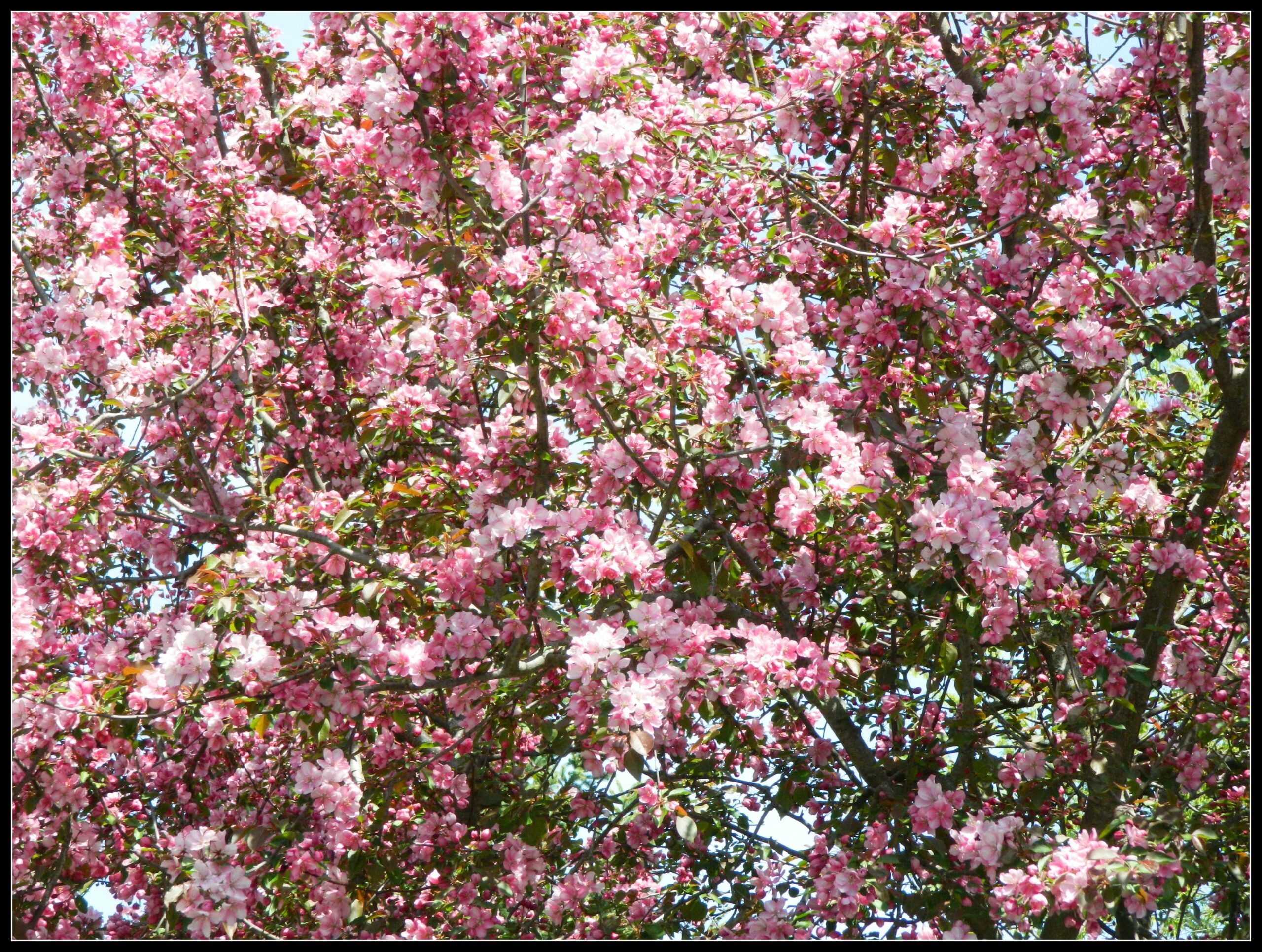
What does a white crabapple tree look like?
The Centennial Crabapple. The Centennial Crabapple is a dwarf crabapple tree, reaching heights of up to 8-feet. Some trees grown on rootstock can reach a height of up to 15-feet. This tree also produces apples that are fine for eating, and the fruit is also suitable for apple butter, jelly, or spicing as well.
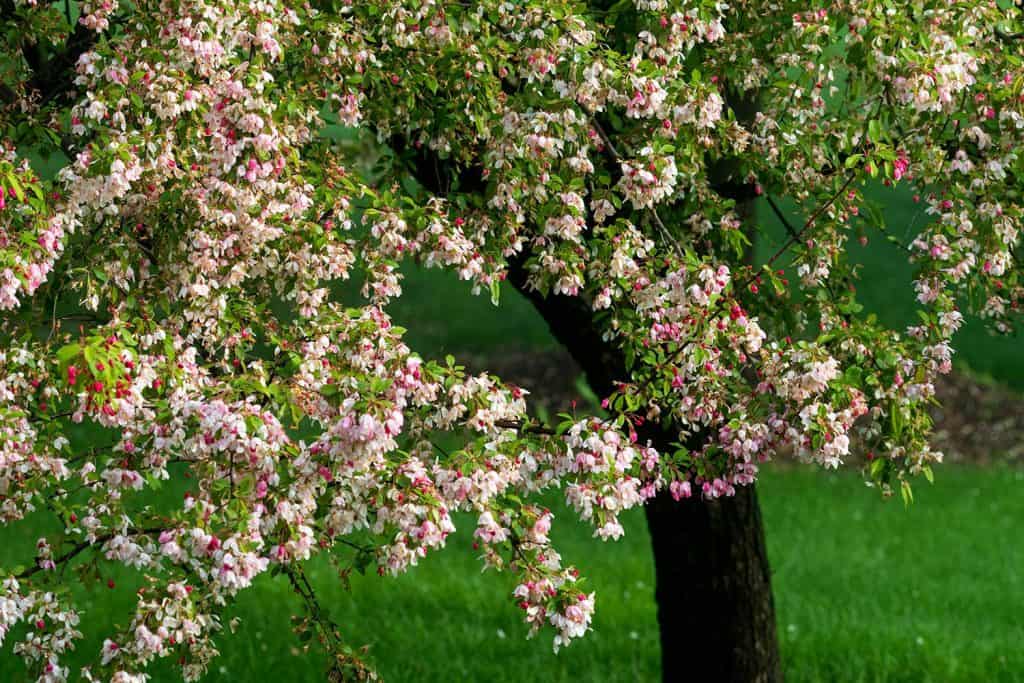
How Much Water Does A Crabapple Tree Need?
Follow general rules for tree planting: Loosen the root ball gently, use soil amendments (peat moss and coffee grounds both help keep soil slightly acidic), dig the hole twice as large as the root ball, and water frequently and deeply during the first few weeks.
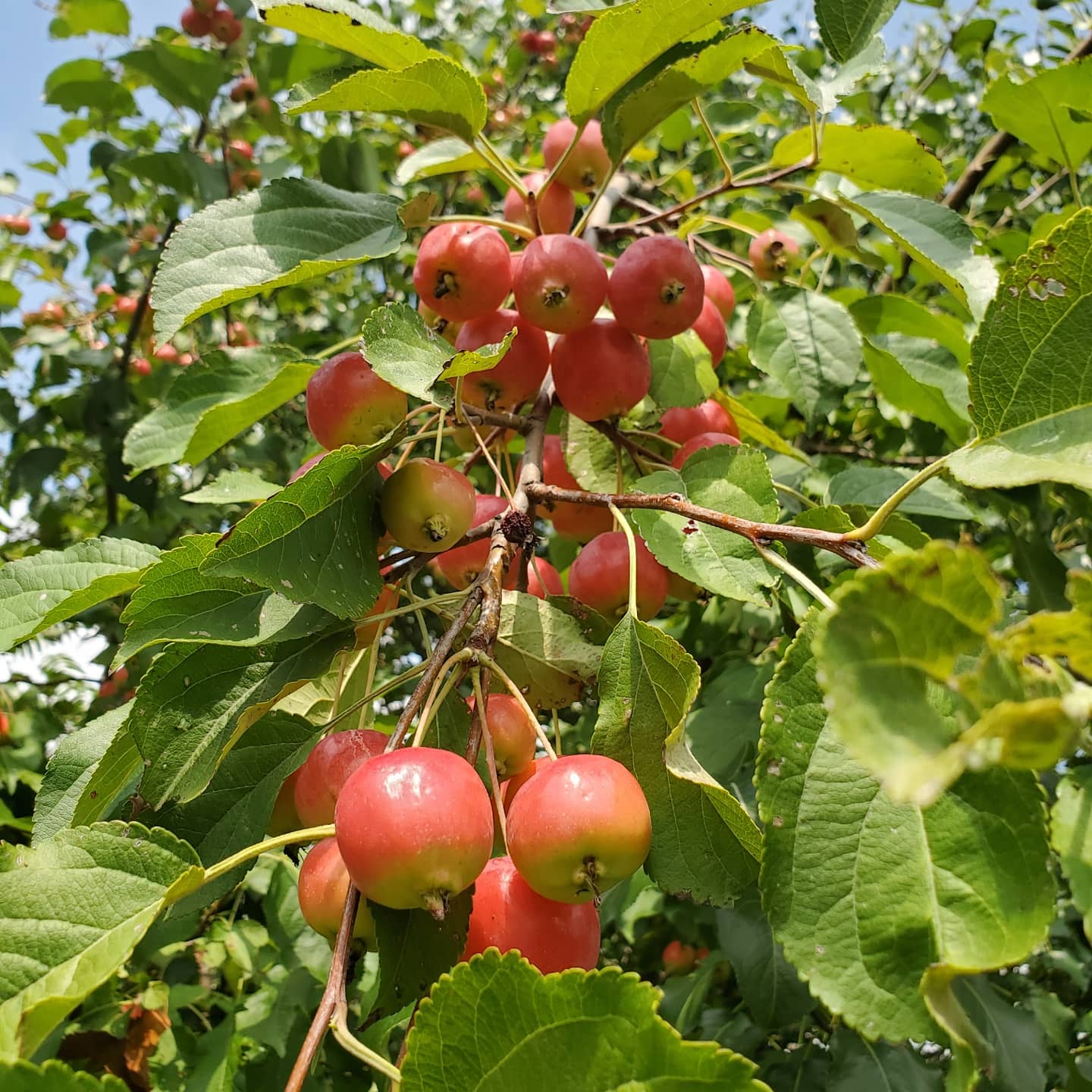
Wild Crabapple Trees Malus Dolgo Blue Hill Wildlife Nursery
What does crabapple look like? As have been mentioned, crabapples are smaller in height compared to the common apple tree. They also have more spines and have stiffer stems and branches. As a decorative tree, it has very beautiful foliage. It is known for its five petals that come in white, pink, and purple colors.

Royal Raindrops Crabapple Tree Green Thumbs Garden
Description Flowering crabapple blooms. Apple trees are typically 4-12 metres (13-39 feet) talI at maturity, with a dense, twiggy crown. The leaves are 3-10 centimetres (1 + 1 ⁄ 4 -4 inches) long, alternate, simple, with a serrated margin. The flowers are borne in corymbs, and have five petals, which may be white, pink, or red, and are perfect, with usually red stamens that produce.

Crab apple How To Grow Trees
crabapple, any of several small trees of the genus Malus, in the rose family ().Crabapples are native to North America and Asia. They are widely grown for their attractive growth habit, spring flower display, and decorative fruits. The fruits are much smaller and more tart than the common apple (Malus domestica) but are suitable for jellies, preserves, and cider.

A Crab Apple, what a beautiful thing, but they taste like liquid
Can You Eat Crabapples? Crabapples are an edible type of fruit but they generally have a tart taste so you wouldn't like to eat them raw. Because crabapples generally have a tarter taste than regular apples, they are used in cooking recipes. Popular ways to eat crabapples are jellies, sauces, pickled crabapples, and jams.
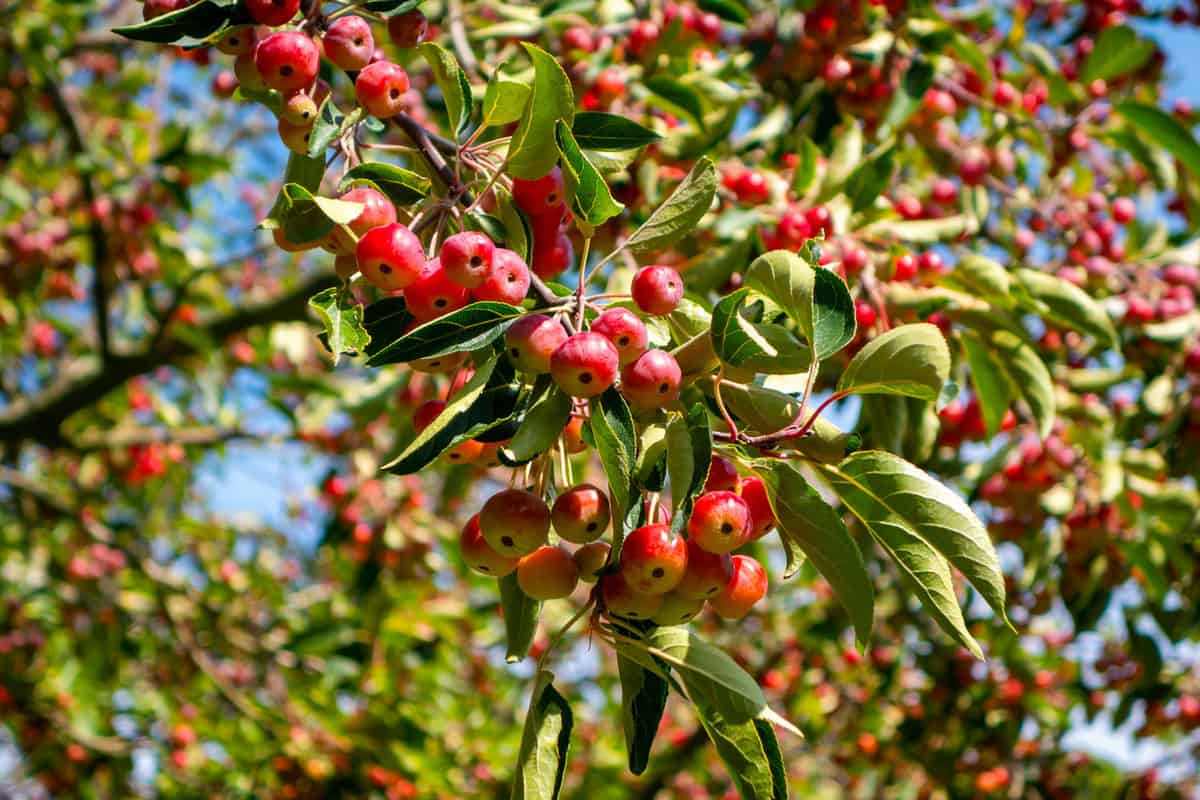
How Much Sun Does A Crabapple Tree Need?
Peak crabapple bloom time is mid-spring to late spring, depending on regions and varieties. The average flowering period is about 10 days, although very hot days or windy conditions with rain can cut this down to 5-6 days. Double-flowering crabapples generally have a longer period of blooms, up to 12 days. Hardiness. 4 - 8.